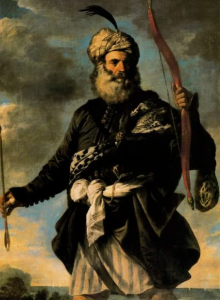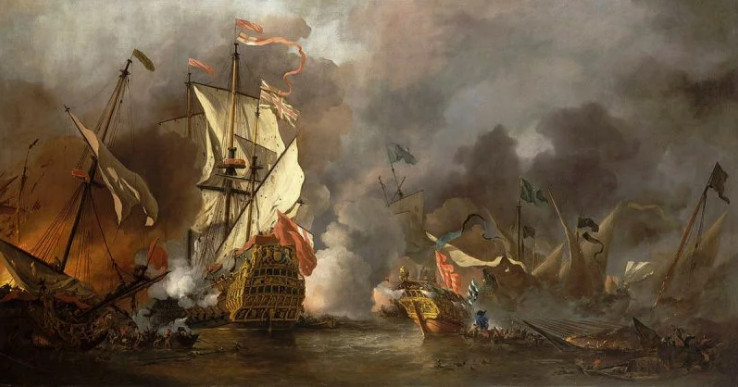The term “Barbary’ is an adjective that refers to the inhabitants of the coastal regions of North Africa. The ethnic group indigenous to this region are commonly known as Berbers. During the times of the Roman and Greek empires, people who spoke different languages were considered barbarians.
The definition of a Barbarian is as follows, a member of a community or tribe not belonging to one of the great civilizations (Greek, Roman, Christian).
To the Greeks and Romans, those of different ethnicities and cultures spoke gibberish that sounded like they were saying “bar bar bar” when they spoke. In a nutshell, to English speakers, this is like calling a person who speaks another language “Blahrians” because their language sounds like “blah blah blah” and we don’t understand it. In the 7th century, the Arabs introduced their new religion, Islam, and the Arabic language to Northern Africa.

(A Barbary pirate, Pier Francesco Mola 1650)
They also used the word “Berber” (the Arabian variant of Barbarian) to refer to those who were not of their culture. The term “Turk” was often used to describe the ethnicity of these pirates. However, this was a misnomer, Turks were from Turkey. During the Barbary raids, few westerners understood the difference between an Ottoman Turk, a Berber, and an Arab.
The term Barbary stuck when Arab invaders conquered various North African territories in the 7th century. Consequently, European cartographers would name this area the Barbary Coast or “Barbaria.” This area would become more and more distinguished from the rest of the Arab world from the beginning to the end of the Ottoman Era. The Ottomans relied on the inhabitants in this area for diplomacy and raiding after losing control of the Mediterranean.
Read more HERE






































